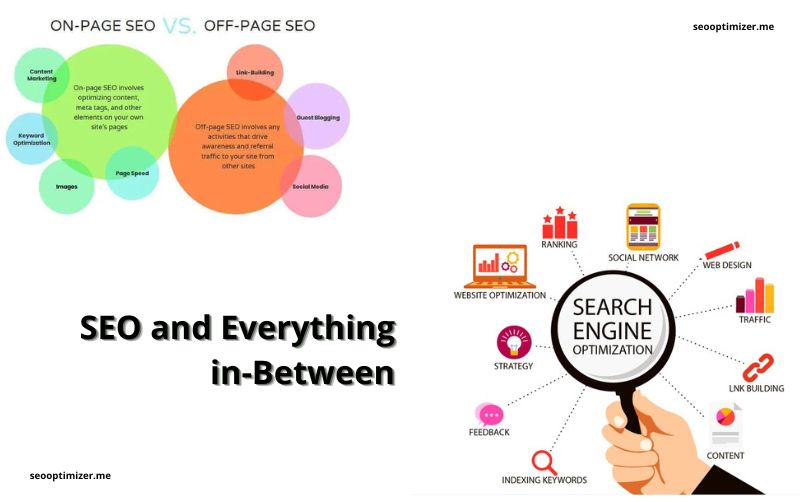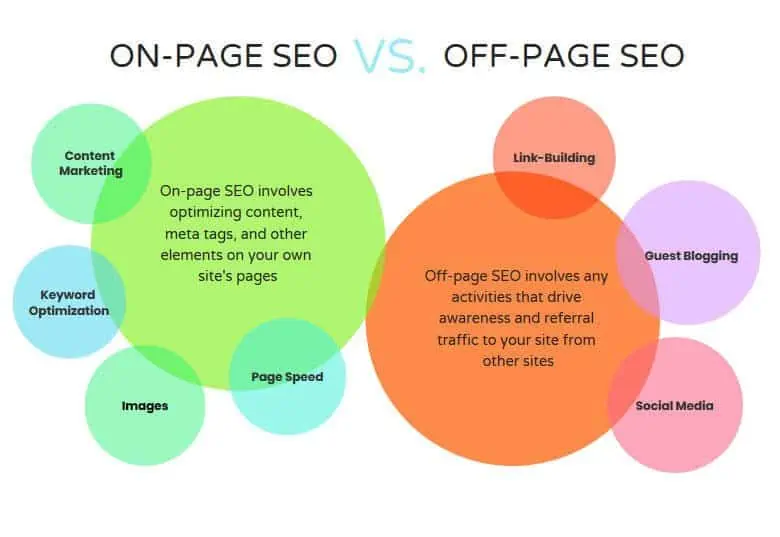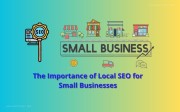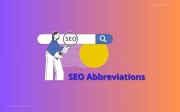SEO and Everything in-Between

SEO is otherwise known as Search Engine Optimization and it is a means of improving the quality and quantity of website traffic to a website or a web page from search engines like Google, Bing or Yandex. It is a term coined in the 90s around the time content providers, authors, developers, and webmasters began the optimization of websites for search engines.
It includes various techniques, and each has its own unique purpose. In this article, I will discuss four different types of SEO: on-page SEO, off-page SEO, technical SEO, and local SEO.
Therefore, this article explores four SEO techniques and how they can be used to enhance a website's visibility and ranking on search engine such as Google.
Also read: 8 Essential Web & SEO Tools for Auditing and Monitoring Websites
4 Types of SEO
1. On-page SEO:
On-page SEO is a search engine optimization technique that involves the optimization of a website in order to ultimately improve and increase the website's ranking.
This technique includes optimizing content, meta tags, header tags, internal links, image alt tags, etc. On-page SEO is essential because it informs search engines what a web page is about, and it helps them understand the relevance of the content to the user's search query. Content optimization is the most crucial aspect of on-page SEO.
a. Content Quality and Keyword: A webpage's content should be well-researched and with relevant data and information. It should also contain relevant keywords that users are likely to use when searching for information on the topic. The content should be structured using header tags (H1, H2, H3), which not only helps search engines understand the structure of the content but also make it easier for users to read.
b. Meta Tags: On-page SEO also involves meta tags, which are of significant importance.
They include the title tag, description tag, and keyword tag. The title tag is the text that appears in the search engine results page, and it should contain the primary keyword for the web page. The description tag provides a brief summary of the web page's content, and it should contain the primary keyword as well. The keyword tag is less important than it used to be, but it can still be useful if used correctly.
c. Header Tags: Header tags (H1, H2, H3) are also essential for on-page SEO; Using header tags on a web page assists in arranging the content in a structured manner, thereby making it easier for search engines to understand.
It's important to use header tags correctly, with H1 tags used for the main title of the page, H2 tags used for subheadings, and H3 tags used for further subheadings.
d. Internal linking: Internal linking is an important aspect of on-page SEO;
It helps to distribute page authority throughout the website and helps users navigate between pages. Internal links should be used in a way that makes sense for the user, and they should use relevant anchor text.
e. Image alt tags: Image alt tags are also an essential part of on-page SEO. The image text descriptions let search engine have more understanding of a web page. Alt tags should be descriptive, but they should also be concise.

Also read: Ultimate SEO Guides for Ranking in 2023
2. Off-page SEO:
off-page SEO are optimization techniques that are executed beyond the website or webpage itself. Off-page SEO includes social media marketing, website or content mentions, social networking, brand promotion, guest posting, linking building, etc. The process of obtaining links from external websites to your own website is known as link building which is an important aspect of off-page SEO.
The quality of the links is more important than the quantity, and links from authoritative websites are more valuable than links from low-quality websites. Link building should be done in a natural way, and it should not be done using black hat techniques such as buying links.
The process of advertising or promoting a website or web page on social media platforms like Reddit, medium, Facebook, Twitter, and LinkedIn is referred to as social media marketing. This marketing approach has the potential to enhance brand recognition, attract visitors to a website, and enhance interactions with clients.
Influencer marketing is the process of partnering with influencers to promote a website or web page. Influencers are individuals with a large following on social media platforms, and they can help to increase brand awareness and drive traffic to a website.
3. Technical SEO:
Technical SEO is an SEO practice that includes optimization of the technical aspect of a website such as server optimization so that the website is fast and user-friendly and to helps web crawlers index a site more effectively. Technical SEO includes various techniques such as optimizing website speed, mobile responsiveness, website architecture, and structured data, connecting the website to google analytics and google webmaster, submitting sitemaps for crawler access, updating robot.txt files, improving website readability, and so on.
a. Website speed optimization:
Website speed optimization is another aspect of technical SEO which is important. A website should be well optimized so that it load very fast as it allows users to have a better user experience and also help search engine to rank the website better. Website speed can be improved by optimizing images, minifying code, and reducing the number of HTTP requests.
b. Mobile Responsiveness:
With more and more people accessing the internet through mobile devices, it's essential for websites to be optimized for mobile devices. A mobile-responsive website provides a better user experience, and it can also help to improve the website's ranking in mobile search results.
c. Website Architecture:
The Design or structure of a website is also an aspect of technical SEO that is important. When a website is well-organized, it helps engines to read and categorize its content. This can result in increased visibility and higher rankings in search engine results pages (SERPs). Website architecture includes elements such as URL structure, internal linking, and sitemaps.
d. Structured Data:
Structured data provides more data to search engines like google about the content of a website or webpage. By providing extra information about the content of a webpage, structured data can potentially enhance the webpage's visibility and ranking in search engine results pages (SERPs).
Structured data includes elements such as schema markup, which provides information about a web page's content.
Suggested read: 11 Common SEO Mistakes you Should Avoid
4. Local SEO:
Local SEO is the act of improving a website or web page to better appear in local search results is known as local SEO. Local search queries are searches that are related to a specific geographic location.
Local SEO involves several strategies that aim to boost local search rankings, such as refining website content to match local search queries, optimizing Google My Business listings, and building local citations.
Optimizing Google My Business (GMB) listing is a crucial aspect of local SEO.
GMB enables business owners to regulate their online visibility on Google's various platforms, such as search and maps. Optimizing GMB listing includes elements such as providing accurate business information, including business hours, contact information, and photos. Building local citations is another critical aspect of local SEO. Local citations are instances where a business's name, address, and phone number (NAP) are referenced on external websites, such as directories and social media platforms. The process of constructing local citations can aid in enhancing a business's visibility in local search results.
Website content should also be optimized for local search queries. This includes optimizing content for local keywords, including location-specific information, and location-specific landing pages.
Also read: Best Guide for Keywords Usage in SEO
What's Next –
Start SEO Optimization. Analyze your website with Free SEO Optimizer
Audit your website for Free - SEO audit free
Suggested reads:
Also read: SEO for Beginners – Ultimate Guide
Also read: RoadMap to Becoming An SEO Expert
Also read: 15 Top SEO Experts and Specialists
Also read: AI SEO – The Impact of Artificial Intelligence on SEO Strategies
Also read: Google Indexing and How Web Crawler Works




